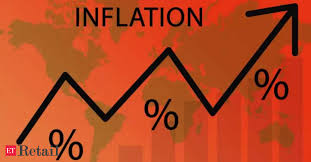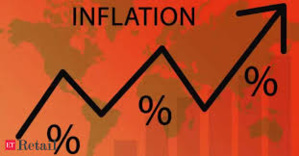Inflation was slightly lower than expected in November in the UK, at 10.7%, as lower fuel prices helped ease price pressures, though high food and energy prices continued to squeeze households and businesses.
Reuters polled economists predicted an annual increase in the consumer price index of 10.9% in November, following an unexpected rise to a 41-year high of 11.1% in October. The November increase was 0.4%, down from 2% in October and below the 0.6% consensus estimate.
The largest upward contributions, according to the Office for National Statistics, came from "housing and household services (primarily from electricity, gas, and other fuels), and food and non-alcoholic beverages."
The largest monthly downward contributions came from "transport, particularly motor fuels," with rising restaurant, cafe, and pub prices making the largest, partially offsetting, upward contribution.
On Thursday, the Bank of England will announce its next monetary policy move. It is widely expected to raise interest rates by 50 basis points as it deals with sky-high inflation and an economy that policymakers say is already in its longest slump on record.
Over the Christmas season, the country will see widespread strike action as workers demand pay raises closer to the rate of inflation and better working conditions.
According to the independent Office for Budget Responsibility, the United Kingdom will experience its largest drop in living standards since records began, with real household income expected to fall by 4.3% in 2022-23.
Last month, UK Finance Minister Jeremy Hunt announced a £55 billion ($68 billion) fiscal plan, including a slew of tax increases and spending cuts, in an attempt to plug a significant hole in the country's public finances.
While the decrease in Wednesday's figures is a step in the right direction, rising food prices and household energy bills continue to be a thorn in the side of the British economy, according to Richard Carter, head of fixed interest research at Quilter Cheviot.
However, Carter suggested that inflation may have finally peaked, following the United States' better-than-expected CPI print on Tuesday.
“Temperatures have taken a sharp dive in the last week or so, and the demand for gas will no doubt have increased as people are forced to heat their homes,” Carter added.
“As the autumn had been rather mild, we will only now begin to see the real impact of higher energy bills. While the government support remains in place for now, any changes made once the April deadline is reached could have a knock-on effect on inflation.”
The Bank of England faces a difficult task in attempting to drag inflation back towards its 2% target while keeping an eye on the economy's weakening. This was evident in the most recent U.K. labor market data, which showed an increase in both unemployment and wage growth.
“While inflation is falling, it remains well ahead of wages, and we are heading into a new winter of discontent with strikes concentrated in the unionised public sector and former nationalised industries as a result,” Carter said.
The market expects the Bank to raise interest rates by 50 basis points on Thursday, bringing the benchmark rate to 3.5%. Policymakers have hinted that the pace of hikes may slow in 2023. However, inflation remains far above the target level.
“The Chancellor’s Autumn Statement in November helped to settle the waters following months of significant turbulence, but inflation remains far above the Bank’s 2% target, which means there is still a long way to go yet,” Carter said.
“A rapid fall in inflation is highly unlikely, but it is positive to see it finally moving in the right direction.”
(Source:www.zeebiz.com)
Reuters polled economists predicted an annual increase in the consumer price index of 10.9% in November, following an unexpected rise to a 41-year high of 11.1% in October. The November increase was 0.4%, down from 2% in October and below the 0.6% consensus estimate.
The largest upward contributions, according to the Office for National Statistics, came from "housing and household services (primarily from electricity, gas, and other fuels), and food and non-alcoholic beverages."
The largest monthly downward contributions came from "transport, particularly motor fuels," with rising restaurant, cafe, and pub prices making the largest, partially offsetting, upward contribution.
On Thursday, the Bank of England will announce its next monetary policy move. It is widely expected to raise interest rates by 50 basis points as it deals with sky-high inflation and an economy that policymakers say is already in its longest slump on record.
Over the Christmas season, the country will see widespread strike action as workers demand pay raises closer to the rate of inflation and better working conditions.
According to the independent Office for Budget Responsibility, the United Kingdom will experience its largest drop in living standards since records began, with real household income expected to fall by 4.3% in 2022-23.
Last month, UK Finance Minister Jeremy Hunt announced a £55 billion ($68 billion) fiscal plan, including a slew of tax increases and spending cuts, in an attempt to plug a significant hole in the country's public finances.
While the decrease in Wednesday's figures is a step in the right direction, rising food prices and household energy bills continue to be a thorn in the side of the British economy, according to Richard Carter, head of fixed interest research at Quilter Cheviot.
However, Carter suggested that inflation may have finally peaked, following the United States' better-than-expected CPI print on Tuesday.
“Temperatures have taken a sharp dive in the last week or so, and the demand for gas will no doubt have increased as people are forced to heat their homes,” Carter added.
“As the autumn had been rather mild, we will only now begin to see the real impact of higher energy bills. While the government support remains in place for now, any changes made once the April deadline is reached could have a knock-on effect on inflation.”
The Bank of England faces a difficult task in attempting to drag inflation back towards its 2% target while keeping an eye on the economy's weakening. This was evident in the most recent U.K. labor market data, which showed an increase in both unemployment and wage growth.
“While inflation is falling, it remains well ahead of wages, and we are heading into a new winter of discontent with strikes concentrated in the unionised public sector and former nationalised industries as a result,” Carter said.
The market expects the Bank to raise interest rates by 50 basis points on Thursday, bringing the benchmark rate to 3.5%. Policymakers have hinted that the pace of hikes may slow in 2023. However, inflation remains far above the target level.
“The Chancellor’s Autumn Statement in November helped to settle the waters following months of significant turbulence, but inflation remains far above the Bank’s 2% target, which means there is still a long way to go yet,” Carter said.
“A rapid fall in inflation is highly unlikely, but it is positive to see it finally moving in the right direction.”
(Source:www.zeebiz.com)






